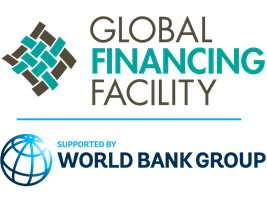By Asmau Ahmad
The Global Financing Facility Replenishment Event is to be co-hosted by Governments of Norway and Burkina Faso, World Bank Group, and Bill & Melinda Gates Foundation and will hold in Oslo, Norway in November 2018. This was contained in a press statement made available by the GFF Secretariat on April 23, 2018. The event in Oslo in November aims to urgently raise funds to save the lives of 38 million women, children and adolescents in 50 countries.
The statement further revealed that every year in 50 countries across the world, more than 5 million mothers and children die from preventable causes, and countries lose billions of dollars to poor health and nutrition. The estimated annual financing shortfall is about US$33 billion on a global level. To end preventable maternal, newborn and child deaths by 2030, countries are acting now to fill the funding gap by investing in the Global Financing Facility (GFF).
The Governments of Norway and Burkina Faso, the World Bank Group, and the Bill & Melinda Gates Foundation announced that they will co-host the GFF replenishment event on November 6, 2018, in Oslo, Norway. The Government of Norway, one of the initiators of and largest investors in the GFF, will also host a conference focused on development finance, in partnership with the GFF, on November 5, 2018, the day before the GFF replenishment event, according to the press statement.
“The Global Financing Facility’s innovative financing of health is groundbreaking. In addition to saving millions of lives we are investing in the health infrastructure and capacity of developing countries.” said Erna Solberg, Prime Minister of Norway. “The Government of Norway is proud to host the GFF replenishment as we continue to work together to ensure that every woman, every child and every adolescent has the opportunity to survive and thrive.”
The GFF supports countries in their transition toward fully providing and funding equitable health care to women, children and adolescents—reaching the Sustainable Development Goals and achieving universal health coverage.
“The Global Financing Facility is changing the way we deliver health and nutrition results to our people,” said Roch Marc Christian Kaboré, President of Burkina Faso. “This new approach is empowering countries like Burkina Faso to sustainably finance health and nutrition, and moreover, the approach will lead the country to achieve its ultimate objective of universal health coverage. Burkina Faso is happy to be a GFF country and we hope other countries will have the opportunity to join the GFF.”
The response to the GFF model has been profound and demand is high. The GFF is working in a total of 26 countries; the GFF aims to reach a total of 50 countries with the greatest needs by the end of 2018 as captured by the statement.
“The Global Financing Facility is an innovative financing platform that is helping countries maximize their human capital investments,” said Jim Yong Kim, President of the World Bank Group. “The GFF is saving and transforming the lives of women, children and adolescents an essential step for nations to prosper and compete successfully in the 21st century global economy.”
Since the September 2018 launch of the GFF replenishment, contributors to the GFF Trust Fund have included the Governments of Japan and Denmark, and the Gates Foundation, which has contributed a total of US$275 million.
“The GFF is an opportunity to transform how we finance global health,” said Melinda Gates, co-chair of the Bill & Melinda Gates Foundation. “I’m excited because it’s based on the conviction that healthy women and children are the life-force of thriving societies. The GFF puts countries in the driver’s seat to identify their top priorities and finance them in a sustainable way.”
The statement further revealed that a catalyst for financing, countries use modest GFF Trust Fund grants to significantly increase their domestic resources alongside the World Bank’s IDA and IBRD financing, aligned external financing, and private sector resources. Each relatively small external investment is multiplied by countries’ own commitments generating a large return on investment, contributing to lives saved and improved.
“This is an historic opportunity to make progress towards universal health coverage by putting women, children and adolescents first,” said Mariam Claeson, Director of the GFF. “Together we can finish the job—we can end preventable maternal, newborn and child deaths by 2030, improve the lives of millions of women, children and adolescents, and empower many more countries to build sustainable futures.”
The GFF, which is the financing arm of the United Nations’ Every Woman Every Child initiative, is a multi-stakeholder partnership that is helping countries tackle the greatest health and nutrition issues affecting women, children and adolescents.
It further revealed by the press statement that Norway, the World Bank Group, Canada and the United Nations launched the GFF at the Third International Conference on Financing for Development in Addis Ababa, Ethiopia, in July 2015, as part of a global conversation about how to finance the Sustainable Development Goals. Since the GFF’s inception, Norway has contributed NOK 600 million annually to the GFF Trust Fund.




